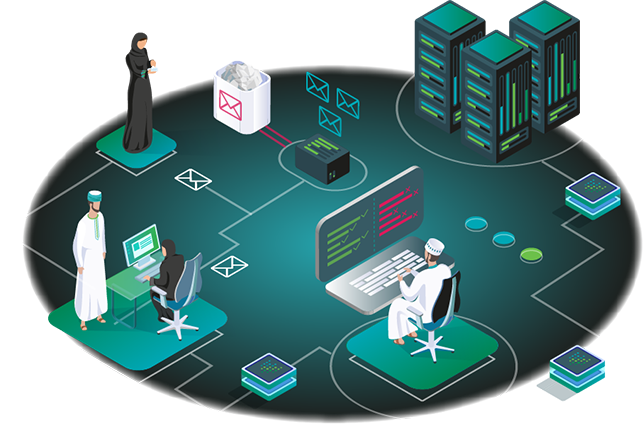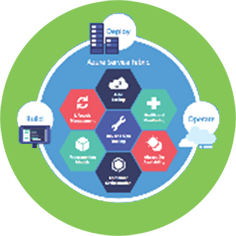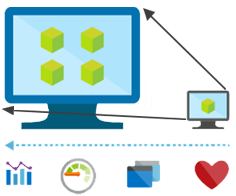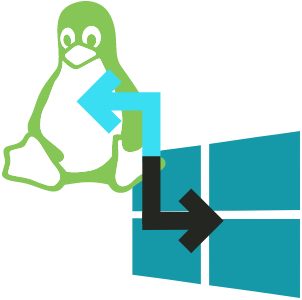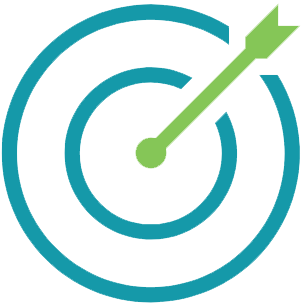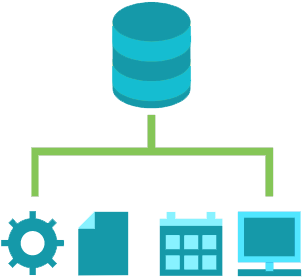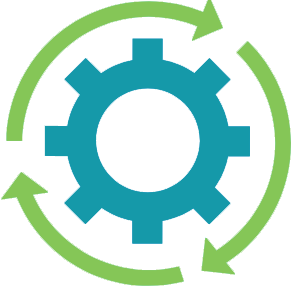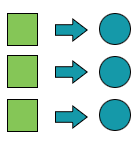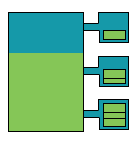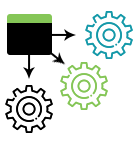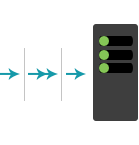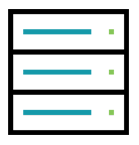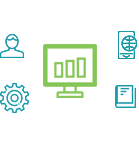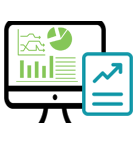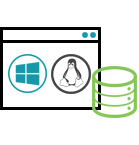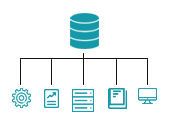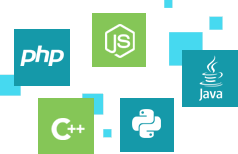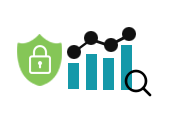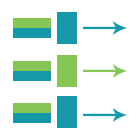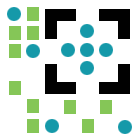- DMARC
- Fully Managed
- ISO27001 for Information Security Management System
- 24X7X365 SOC Security Operations Center
DMARC (Domain-based Message Authentication,
Reporting, and Conformance) Services
Protect your business from 70% of cyber attacks with Managed DMARC services.
Use DMARC Services from The Data Park to Protect Your Communications

If you want to prevent unauthorized usage of your email domain and keep your business and employees away from spam and fraud, we suggest you make use of The Data Park’s DMARC services.
Email threats are here to stay. They will probably continue to develop and broaden.
The trends show that brands and organizations across diverse categories are protecting customers, employees, partners, and constituents with DMARC in a global defence against email fraud.
Of 1,000 top global brands surveyed, 29 percent have adopted DMARC.
The process of keeping your domain safe with Oman Data’s DMARC is simple to explain:
- Domain-Based: Set up a DMARC policy for each of your domains and tracking their usage.
- Message: Provides protection to your email messages.
- Authentication: Reports with insights to the authentication of these messages.
- Reporting: The results are reported for your review.
- Conformance: You can instruct ISP’s how they should handle invalid messages.
These simple steps can secure your email systems against phishing and social engineering attacks.
Key Benefits
- Security – Restrains the unauthorized use of your email domain to protect businesses and clients from spam, fraud, and phishing.
- Visibility – Helps gain visibility into who and what across the internet is using your email domain to send emails.
- Delivery – Uses the same modern methods that mega companies use to deliver email.
- Control – DMARC lets you take absolute control over emails sent from your domains. If anyone starts abusing your domain, you will instantly see it in the DMARC report.
- Identity – Make your email easy to identify across the huge and growing footprint of DMARC-capable receivers.
Features
- Unlimited users, domains and domain groups – Oman Data’s DMARC protects unlimited number of users, domain groups and domains from malicious (phishing) and incorrectly setup email streams.
- Receive daily/weekly reports – You can receive weekly or daily reports that come with summaries with the current DMARC compliance status to users.
- Two-Factor Authentication – Securing accounts is the foremost priority. Therefore, Oman Data’s DMARC recommends setting up two-factor authentication for hardening security.
- Create and check DMARC records – You can create custom reports and check records using the Oman Data’s DMARC quickly.
Spam and Malicious Email Are the Biggest Vectors of Cyber Attack
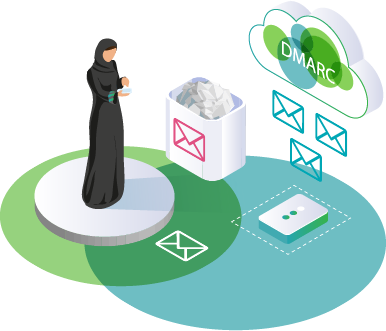
Cyber criminals send out approximately 156 million phishing emails every single day. At least eight million are opened and users interact with them.
Most senders are unaware when a hacker is sending email on their behalf. Recipients believe that the email has been sent from a large organization or a trusted source. Many people click on the links included in the email.
Unfortunately, the messages direct recipients to do something that captures their personal information or executes a malicious attachment.
The sad part is most businesses know they have been receiving scam emails. They do not act to protect their domain, clients, and employees from phishers.
Phishing is the Preferred Method for Many Pirates and Criminals
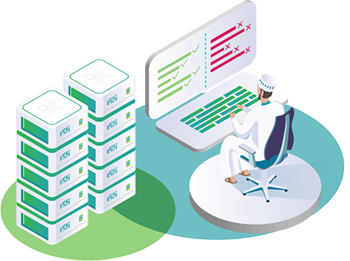
Phishing statistics reveal that 1 email in every 99 is a phishing attack. Of these phishing emails, at least 2 out of the 3 mails use either a malicious link or malware in the email.
Your employees could be receiving 4-5 phishing emails every week. This situation is very alarming as about 30% of all the phishing emails make it past the IT security.
When a cyber-attack hits a small business, it costs them around $55,000 on average. This cost is lower than cyber-attacks on medium and large enterprises that easily escalate to millions of dollars. Proportionally, small businesses struggle to meet the costs of cyber-attacks.
Phishing is one of the most common ways through which hackers wreak havoc. A business must protect its domain against phishing.

